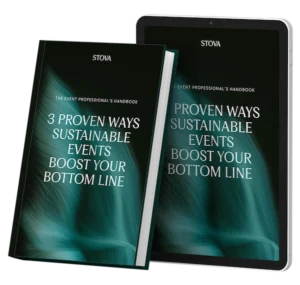How to Pull Off a Large-Scale Hybrid Event
October 19, 2021
Executing a large-scale event can be fulfilling, but the larger you envision your event, the more effort you need to make it a success. Thinking outside of the box in terms of the available budget, time, and resources, allows you to step back, assess your goals, and adjust timelines accordingly. Advanced event planning is paramount to your brand’s success.
Identify Event Goals
Before you start planning for the upcoming event, the first thing to consider is defining the event’s goals and objectives. This makes event planning more straightforward. Although goals and objectives are specific, you need to understand the motive of the event, your target audience, content ideas and outline the key performance indicators.
Concept and Scope
If you want to pull off a hybrid event, you need to ensure you can meet deadlines without spending too many resources, time and money. If you have a timeline and scope, you will not have delayed projects or go beyond the budget. The most important thing is to create and adhere to your event planning schedule.
Detailed Hybrid Event Planning
Here’s where you need to go into the details of your event planning. Consider strategic, systems, operational, and breakdown planning.
Strategic planning entails data and analytics and involves using real-time data from previous events to determine how to achieve your goals and objectives.
System planning entails confirming whether you have the capacity to:
- Keep track of the budget
- Monitoring operations
- Maintaining records
- Performing tasks like booking, registration, cash handling, and ticketing
- Safeguard data
- Make communications with parties involved
- Reporting
- Manage refunds and cancellations
Initial operational planning entails defining how you intend to achieve the event goals. If outlined properly, the operational planning ensures that every team member performs their obligation to attain the event’s goals. Some of the factors you need to consider include:
- Confirming the finalized budget
- The number of expected participants
- Evaluating available venues
- Sharing the concept, objectives, and goals with the planning team
- Funding or sponsorship
Planning For the Unexpected
Planning for the unexpected helps you to stay ahead and gives your team the ability to overcome unforeseen circumstances. One of the best preventive measures you can undertake is informing and involving the local authorities in your upcoming event planning, if applicable. This will allow them to organize and offer the necessary support during emergencies.
Hybrid Event Planning Timeline
12 Months Pre-Event:
It would be best if you started planning the event as early as 12 months before the actual day. At this step, you should have a final concept outline, conduct the first risk assessment, choose and book the venue and consolidate your team. You should also prepare a budget and evaluate the finding and sponsorship abilities a year before the event.
9 Months Pre-Event:
The ideal time to start promoting the event, reviewing the budget, picking a venue layout, and creating the events program is nine months before the event. You can also book transport services, a public address system, and catering services.
3 Months Pre-Event:
You can make another budget review, organize for security, visit the site and make final payments three months to the event. You should confirm the number of participants and ensure if everything is in order a month before the event. You should then set up the event and visit the site to check your team’s preparedness a day or two before the event.
One Week Pre-Event:
One week after the event, you can perform tasks like evaluation, clearing the venue, appreciations, and processing pending invoices.
Hybrid Event Planning Checklist
Ahead of your hybrid event, consider this checklist:
- Booking the venue
- Check the facilities in the venue
- Structure an ideal layout for the venue
- Create a program
- Consider participants with special needs
- Book catering, transport, and other entertainment services
- Safety and first aid
- Prepare certificates, licenses, and qualifications
- Recruit, train, and determine the number of people to deliver services
- Book virtual event platform and ensure its secure
Break down planning entails outlining the tasks to perform after the event. These include clearing the venue, debriefing the team members, conducting surveys, and performing evaluations.
Contingency planning
It’s also advisable to have a backup plan for everything. You should have an alternative if;
- There is a change of venue
- You lose one data and files storage tool
- The staff don’t show up
- Only a handful of people attend
Planning a large-scale hybrid event is not a walk in the park. You need a very cooperative team to ensure all systems are working efficiently to achieve a common goal, a successful event. While we’d love for you to choose Stova, we know there are plenty of other options out there that might better fit your event needs: take a look, and see which features are important to you and your event.
Whether your event is virtual, hybrid, or in-person, enhance your attendee’s journey with an event ecosystem built for your audience. Ready to walk through Stova's event technology solutions? Schedule some time with us today.


